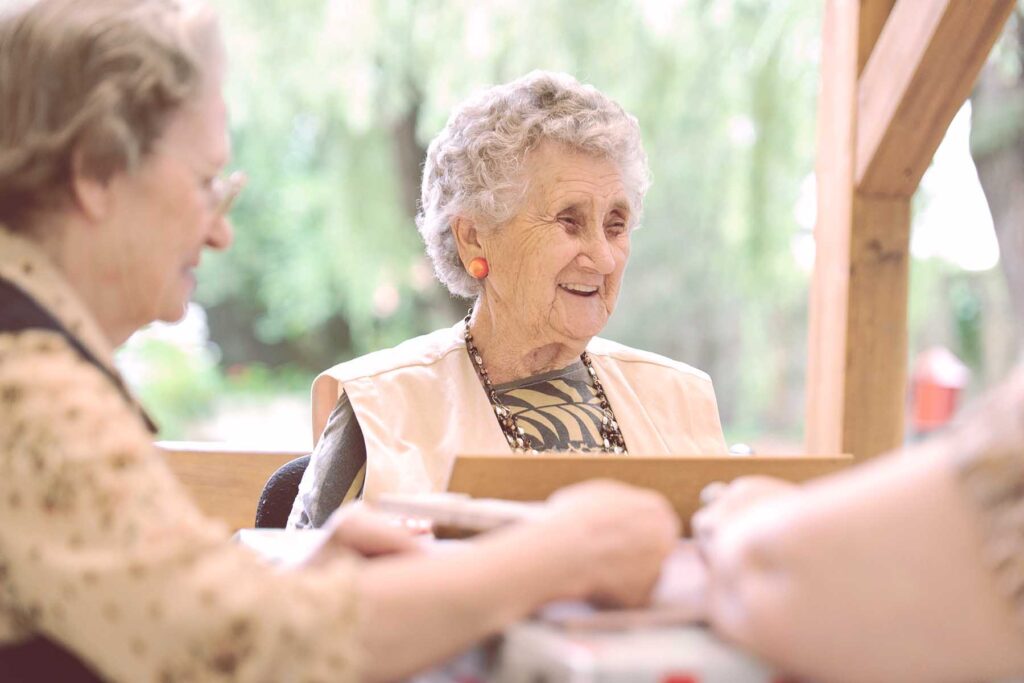As people age, they are bound to experience physical, cognitive, and emotional changes that can impact their mental health. As per various research, mental health issues are common among senior adults and may include depression, anxiety, psychosis, and dementia.
Geriatric nurses play a critical role in promoting positive mental health in senior adults, as they are often the frontline healthcare professionals who interact with this population regularly. Nurses can help aging adults maintain good mental health and quality of life by employing various strategies and interventions.
Today, we will explore six ways nurses can help their senior adult patients maintain good mental health and well-being.
The Need for Qualified Geriatric Nurses:
Geriatric nurses are crucial in promoting positive health outcomes in senior adults. They assess patients’ needs, develop care plans, administer medications, monitor vital signs, and provide emotional support. Moreover, geriatric nurses are trained to recognize and manage mental health issues such as depression, dementia, loneliness, etc.
The need for geriatric nurses in Texas is increasing as the population of older adults continues to grow. According to the U.S. Census Bureau, 13.1% of Texas adults are 65 and older, which is projected to increase in the coming years. As people age, they often face complex health challenges that require specialized care, and geriatric nurses are uniquely qualified to provide this care. Many universities in Texas today offer advanced nursing programs to train nurses for this specialized role.
Some universities are taking it further by offering online programs for Registered Nurses. This way, you can complete your degree easily while working as an R.N. Hence, online RN to BSN programs in Texas might be a great alternative if you want to improve your abilities and knowledge but can’t quit your current employment. The coursework covers various nursing topics, including community nursing, evidence-based practice, and some management courses.
Now, let’s look at the six ways nurses can encourage positive mental health in their older patients.

1. Provide Emotional Support:
Older adults often face various emotional challenges as they age, such as loneliness, depression, and anxiety, and nurses play a vital role in addressing these challenges.
Providing emotional support involves creating a supportive and empathetic environment for older adults. It includes listening to their concerns, validating their feelings, and offering encouragement and positive reinforcement. Nurses can help seniors feel more connected and less isolated by providing a listening ear. When patients feel heard and understood, they are more comfortable sharing their concerns and feelings.
2. Encourage Socialization:
Seniors who feel isolated or disconnected are at greater risk of developing poor mental health. Socialization can help combat these negative emotions by providing engagement, interaction, and support opportunities.
Nurses can help such patients by encouraging them to socialize. It can be achieved in several ways, including facilitating group activities, promoting involvement in community programs, and connecting patients with resources and services that enable social engagement. For example, nurses may organize group exercise classes, similar hobby groups, or discussion groups for their elderly patients. They can also encourage patients to participate in local community events or volunteer opportunities to engage with the outside world more.

3. Promote Physical Activity:
Physical function generally declines as people age, which can contribute to various adverse health outcomes. Regular exercise can combat these negative outcomes by improving physical function, reducing the risk of chronic diseases, and improving the overall quality of life. It can also improve mental health outcomes by reducing symptoms of depression and anxiety and increasing cognitive function.
As a nurse, you can encourage physical activity in several ways, including providing education on the benefits of exercise, helping patients set realistic goals, and providing guidance on appropriate exercises and activities. Encouraging patients to engage in regular exercise, whether a daily walk, chair exercise, or any other form of physical activity, will ultimately bring them toward a happier and healthier lifestyle.
4. Educating on Healthy Habits:
Older adults usually suffer from many health-related challenges, so educating elderly patients about healthy habits can help them manage their illnesses and overall health. Nurses can help seniors maintain their health by promoting healthy habits, such as good nutrition, regular sleep patterns, and stress reduction techniques.
By providing education and resources on healthy habits, nurses can empower senior adults to take control of their own mental and physical health. It will help their patients maintain their independence and reduce their reliance on healthcare services, which benefits both the patient and the nurse.

5. Screen for Depression:
Screening elderly patients for depression is an essential aspect of geriatric nursing, and nurses play a crucial role in identifying patients who may be experiencing symptoms of depression. As people age, they may experience various life changes, including losing loved ones, declining health, and changes in social support networks. These changes can increase the risk of depression, and identifying and addressing symptoms early on can improve patient outcomes.
Nurses can screen elderly patients for depression in several ways, including administering screening tools, asking patients about their moods and feelings, and observing changes in behavior or affect. If you see your patient experiencing such behavior, refer them to the appropriate resources.
6. Connect Senior Adults with Resources:
Connecting elderly patients with mental health resources is a crucial aspect of geriatric nursing, as mental health challenges can significantly impact their quality of life. Older adults require additional resources to treat these problems, such as therapy sessions with licensed professionals.
Here, nurses play a critical role in helping patients access the care and support they need by providing education on available resources, making referrals to mental health professionals, and helping patients navigate the healthcare system. They should take time to connect seniors suffering from adverse mental illnesses with relevant resources available within their community.
Doing so can improve mental health outcomes and reduce the risk of isolation and social withdrawal in the elderly. Furthermore, in these difficult times, older people need support and reassurance from their families. Therefore, as a nurse, you should encourage the family members of the senior adults to provide the necessary emotional support to their loved ones.

Conclusion:
Nurses play a crucial role in promoting positive mental health in senior adults. By understanding the needs of aging adults, you, as a nurse, can provide specialized care to them to improve their physical and psychological well-being.
As the population ages, the need for geriatric nursing will only continue to grow, making it increasingly important for nurses to prioritize the mental health needs of their elderly patients. With the proper support and care, elderly patients can enjoy a high quality of life and maintain positive mental health well into their golden years.

